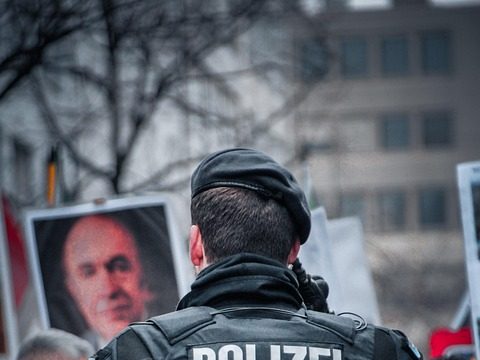Police misconduct is a topic that ignites passionate discussions across communities. It’s not just about bad apples; it’s a systemic issue that can affect anyone, regardless of background. From excessive use of force to wrongful arrests, the ramifications of police misconduct can be devastating. Moreover, these cases often lead to significant legal changes that shape our society. Today, we delve into ten shocking instances of police misconduct that not only made headlines but also changed the law forever.
1. The Rodney King Incident
In 1991, the brutal beating of Rodney King by LAPD officers was captured on video and sparked outrage across the country. The acquittal of the officers involved ignited the 1992 Los Angeles riots, ultimately leading to widespread calls for police reform. This incident became a catalyst for the implementation of community policing strategies and the establishment of new oversight committees aimed at holding law enforcement accountable.
2. The Shooting of Michael Brown
The shooting of Michael Brown in Ferguson, Missouri, in 2014 provoked national protests and discussions on systemic racism in law enforcement. His death led to various legal reforms focused on police practices and the militarization of local police forces. The Black Lives Matter movement gained traction, emphasizing the need for transparency and reform in policing methods. As a result, many states began to adopt new laws mandating the use of body cameras by police officers.
3. The Killing of Eric Garner
The death of Eric Garner in 2014, resulting from a police chokehold during an arrest for selling loose cigarettes, raised awareness about excessive force used by officers. Garner’s last words, “I can’t breathe,” turned into a rallying cry for activists. In response, New York enacted legislation banning chokeholds and encouraged the implementation of de-escalation training for officers. Garner’s case brought forth discussions about prioritizing community safety over aggressive policing tactics.
4. The Boston Police Department’s Racial Profiling Scandal
In 2016, a scandal erupted after several Boston police officers were found to have engaged in racially biased policing practices. This shocking misconduct prompted public outrage and led to the reevaluation of existing policies. Boston implemented stricter anti-profiling laws, ensuring that officers received training on biases and prejudices. This case highlighted the urgent need for accountability measures to curb discrimination in law enforcement.
5. The Newark Police Department Scandal
In a 2014 investigation, the U.S. Department of Justice found that the Newark Police Department practiced unconstitutional stops and arrests. The case went to federal court, resulting in a consent decree that mandated reforms within the department. This scandal changed the landscape for police departments across the nation, stressing the importance of community engagement in law enforcement practices and the necessity for independent investigations of police misconduct.
6. The Killing of Tamir Rice
The shooting of 12-year-old Tamir Rice by Cleveland police officers in 2014 not only sparked outrage but also led to legislative changes regarding how police respond to emergency calls involving children. Local and state governments began to implement changes to enhance crisis intervention training and improve procedures for responding to mental health crises, ultimately aiming to ensure better outcomes for vulnerable populations in future encounters.
7. The Chicago Police Torture Scandal
Throughout the late 1970s and 1980s, Chicago police officers tortured suspects to extract confessions—a shocking revelation that became public knowledge in the 1990s. Following years of legal battles, the state passed the Torture Inquiry and Relief Commission (TIRC) Act, allowing individuals who were wrongfully convicted due to police misconduct to seek justice. This established crucial legal precedents aimed at eradicating such abuses and holding law enforcement liable for their actions.
8. The Trial of Derek Chauvin
The killing of George Floyd by officer Derek Chauvin in 2020 was a pivotal moment in history, compelling the world to confront issues of systemic racism and police brutality. The ensuing protests led to widespread calls for reform, and as a result, numerous local governments and states implemented changes regarding police funding and oversight. Derek Chauvin’s conviction and sentence shed light on accountability and sparked urgent discussions about redefining policing in America.
9. The Murder of Breonna Taylor
Breonna Taylor, a healthcare worker, was shot in her own home during a botched raid in 2020. Her death catalyzed protests and debates about “no-knock warrants” and police accountability. Following community pressure, Kentucky passed several reforms, including a ban on no-knock warrants in certain situations. Breonna’s case underscored the importance of transparency and accountability in police operations, shaping conversations nationwide about legal standards in policing.
10. The Death of George Floyd
George Floyd’s death in 2020 brought international attention and led to a renewed conversation about police misconduct and racial justice. The resulting protests motivated many states to re-evaluate policing policies, leading to significant legislative reforms. Calls for defunding the police emerged, and in many places, funds were reallocated towards community services, mental health initiatives, and social safety nets.
Unpacking the Legacy of Police Misconduct
These cases of police misconduct have not only shocked communities but also served as powerful catalysts for change in the legal landscape surrounding law enforcement. It’s crucial to examine these incidents critically to drive discussions for effective reforms. As society evolves, so does our understanding of justice and accountability in the policing system.
What are your thoughts on these cases of police misconduct? Do you believe enough has changed, or is there still more work to be done? Share your experiences and insights in the comments!

Covers viral stories, pop culture, and breaking celebrity news.
Bio: Jamie has a sharp eye for what’s buzzing online, tracking social media trends and entertainment headlines around the clock.

